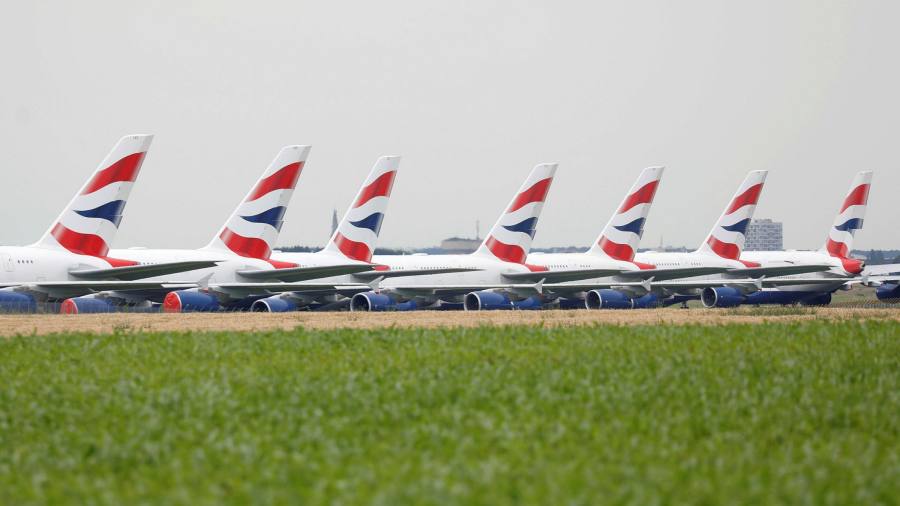[ad_1]
Investors, apparently surprised to discover that vaccination rollout is a messy business, dumped UK travel shares on Tuesday. International Airlines Group, the holding company for UK and Spanish national carriers, dropped 4 per cent in morning trade. Hoteliers such as Whitbread and Accor fell too, trailing the broader market. The decline reflects an increasingly fractious global row over the efficacy of the Oxford/AstraZeneca jab.
Brits had high hopes of unfurling their beach towels this summer. In 2019, 78 per cent of UK trips were to Europe. Europe is not playing ball amid a fresh surge of Covid-19 cases. Vaccination doses administered in the EU per 100 people are running at almost one-quarter of UK levels, partly due to concerns over the AstraZeneca jab. There are supply issues too, with the UK and EU at odds over vaccine exports.
Airline shares have ducked and dived alongside vaccine hopes and fears. Carriers are a shadow of their pre-coronavirus selves. Last year’s losses reached $118bn, according to industry body Iata. But public funds have patched up balance sheets. Grounded planes helped shrink capacity ahead of the UK’s expected mid-May return to travel.
That timetable now looks ambitious. Even assuming it sticks, carriers need to restructure how they operate. Short-haul, cheaper flights — think stag party in Croatia or beach trips to France — will be more in demand than trans-Pacific journeys. Airlines will probably need incentives to lure people aboard, be it with free luggage allowances or discounted tickets.
The scale remains daunting. To achieve a 20 per cent reduction in capacity and 2.5 per cent price cut requires more than two-fifths of fixed cost reduction to return to pre-crisis profitability, think Bernstein analysts.
Hotels face a similar conundrum. Some customers will permanently disappear, with business travellers using video calls instead of flying visits. As furlough schemes wind down, payrolls will go up. Bulls envisaging a rerun of the Roaring Twenties on the back of pent-up demand may demur, but room prices will probably decrease as hoteliers fight to fill them. Accor, with its greater exposure to Europe, can expect to lag behind peers such as Whitbread and InterContinental Hotels.
Despite the recent hype, both sectors will need years to return to pre-coronavirus levels of demand; profitability could take longer still. Investors, like holidaymakers, are advised to sit it out for a while longer.
[ad_2]
Source link






